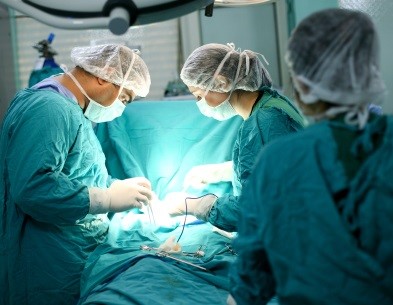Sleep Deprived Doctors Not Prone to Medical Errors, Says Study

 A recent study published in the Journal of the American Medical Association (JAMA) reports that sleep deprivation in surgeons doesn’t always result in more medical errors when performing gall bladder surgeries. One of the lead researchers, Danielle Nash, told Reuters that the study’s findings should prove reassuring for patients going in for such an elective surgery.
A recent study published in the Journal of the American Medical Association (JAMA) reports that sleep deprivation in surgeons doesn’t always result in more medical errors when performing gall bladder surgeries. One of the lead researchers, Danielle Nash, told Reuters that the study’s findings should prove reassuring for patients going in for such an elective surgery.
The results may be encouraging, especially in light of another report published in The Journal of Patient Safety that says up to 440,000 patients each year suffer some sort of preventable injury in the hospital that contributes to their death. If those figures are correct, that would mean that medical errors top the list in the leading cause of death in Americans, just behind heart disease and cancer.
Surgeon fatigue doesn’t increase odds of medical errors, reports study
According to Nash’s study on preventable surgical errors and doctor fatigue – which was conducted at Ontario’s Institute for Clinical Evaluative Sciences in London – sleep deprivation doesn’t affect how well surgeons perform. Researchers analyzed data from 331 surgeons who performed elective (non-emergency) gall bladder operations at 102 community hospitals throughout Ontario. The team looked at whether or not the doctors had operated the night before to determine whether fatigue or lack of sleep influenced patient outcome.
In some instances, surgeons had to make larger incisions for the gall bladder surgery – a factor that equals a longer recovery period and increased risk of complications for the patient. However, Nash and her colleagues found that doctors had to do this in just under 2 percent of cases, and whether or not they were working the night before had no bearing on this decision. The study also found that patient injury including punctured blood vessels or bowels, resulting from surgical errors, occurred in less than 1 percent of cases involving surgeries performed by both fatigued and non-fatigued doctors.
Patient deaths were rare in both groups, reported Nash, who revealed in JAMA that that five or fewer patients died within 30 days of the gall bladder surgery, whether performed by a sleep-deprived physician or one who had not worked the night before.
Nash told Reuters, “Even if they have a surgeon who may be working long hours or is tired, they shouldn’t be worried that he isn’t capable of performing the surgery to the best of his ability.”
Concerns about doctor fatigue leads to work hour restrictions
In 2003 and 2011, the Accreditation Council for Graduate Medical Education mandated restrictions on work hours for physicians who were training, based on concerns that long shifts and increased fatigue was contributing to higher rates of medical errors. These work-hour restrictions may sound good in theory, but in the real world, says Dr. Jordan Weinberg, overtime work is part and parcel of the health care system.
Dr. Weinberg who works at the University of Tennessee Health Science Center in Memphis, was not part of Nash’s research team, but has also studied the effects of sleep deprivation on surgeon performance. Weinberg told Reuters Health that doctors must usually work long hours and night shifts in order to provide timely care to patients, and that while work hour limits are in place, most surgeons aren’t able to adhere to such restrictions and still maintain their busy practices.
Every patient who goes into surgery – whether for an elective procedure or an emergency operation – wants their doctor to be well-rested. Weinberg adds that it’s not unreasonable to want to reschedule a surgery if one discovers that their physician has worked an all-nighter.


